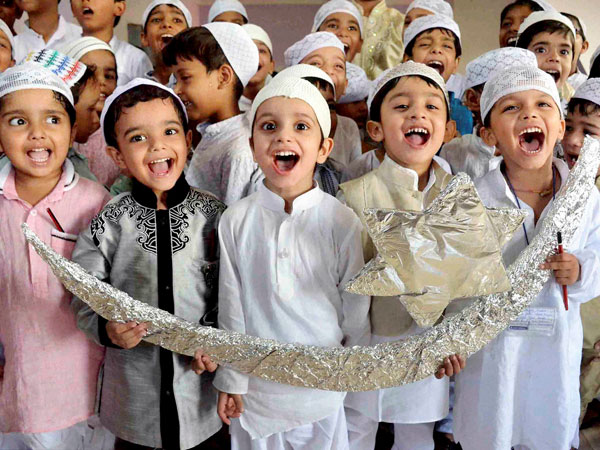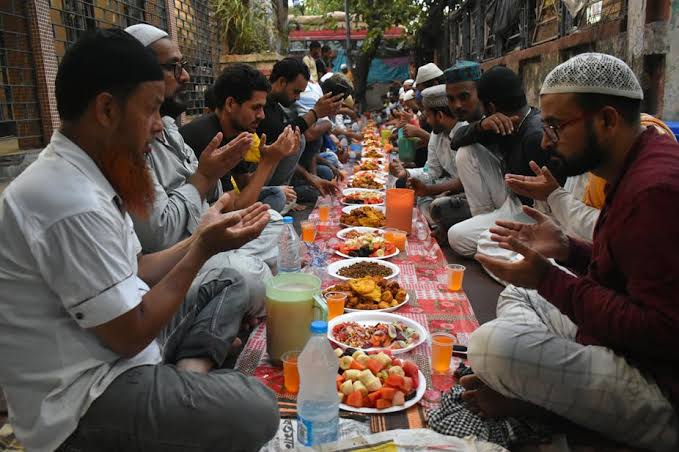7 ways Muslims can prepare for Ramadan fasting

Ramadan is a sacred month in the Islamic calendar, observed by Muslims worldwide as a time of fasting, prayer, and reflection.
Fasting during Ramadan is one of the Five Pillars of Islam and is obligatory for all adult Muslims, with exceptions for certain individuals such as the sick, elderly, pregnant women, and travelers.
To prepare for Ramadan fasting effectively, Muslims engage in various practices that encompass physical, spiritual, and mental readiness.
Here are 7 ways Muslims can prepare for Ramadan fasting:
Mental Preparation: Preparing oneself mentally for Ramadan fasting involves setting the right intentions and understanding the significance of the fast. Muslims focus on strengthening their faith, renewing their commitment to worship, and purifying their intentions for fasting.
They reflect on the spiritual benefits of self-discipline, gratitude, and empathy gained through fasting, which helps them approach Ramadan with a positive mindset and a clear sense of purpose.
Establishing a Routine: Creating a structured daily routine before Ramadan helps Muslims adjust to the changes in eating, sleeping, and praying schedules during the month.
They gradually shift meal times to align with Suhoor (pre-dawn meal) and Iftar (breaking the fast), ensuring they eat balanced meals that provide sustained energy throughout the fasting period.
Establishing a routine also includes allocating time for additional acts of worship such as Taraweeh prayers, Quran recitation, and voluntary acts of charity.
Physical Preparation: Preparing the body for Ramadan fasting involves maintaining good health and fitness through regular exercise, nutritious eating, and adequate hydration.
Muslims focus on consuming foods that provide lasting energy, such as complex carbohydrates, lean proteins, fruits, and vegetables, while avoiding excessive sugars and fats. They also hydrate well during non-fasting hours to prevent dehydration during the day.
Additionally, consulting with healthcare professionals, especially for those with pre-existing medical conditions, ensures a safe fasting experience.
Spiritual Reflection: Before Ramadan begins, Muslims engage in spiritual reflection by seeking forgiveness for past sins, resolving conflicts, and making amends with others.
They engage in increased acts of worship, such as reading the Quran, making Dhikr (remembrance of God), and performing voluntary prayers, to spiritually prepare themselves for the month ahead.
This introspection and self-assessment help Muslims enter Ramadan with a purified heart and a strengthened connection to their faith.
Community Engagement: Preparing for Ramadan fasting involves fostering a sense of community and solidarity with fellow Muslims.
Muslims participate in pre-Ramadan gatherings, where they exchange greetings, share meal planning tips, and offer support to one another.
Engaging in acts of charity and community service, such as feeding the needy, sponsoring Iftar meals, and contributing to charitable causes, reinforces the spirit of generosity and compassion central to Ramadan.
Self-Discipline and Patience: Developing self-discipline and patience are essential aspects of preparing for Ramadan fasting. Muslims practice self-restraint in their daily lives, abstaining from negative behaviors and temptations.
They cultivate patience through enduring hunger, thirst, and fatigue during fasting hours, trusting in the rewards promised by Allah for their perseverance. Strengthening these virtues enables Muslims to navigate the challenges of fasting with resilience and steadfastness.
Setting Spiritual Goals: Before Ramadan begins, Muslims set specific spiritual goals they aim to achieve during the month. These goals may include memorizing portions of the Quran, increasing acts of kindness, deepening their understanding of Islamic teachings, or improving personal character traits.
Read more story on Ramadan:
By setting intentions and striving towards these goals, Muslims maximize the spiritual benefits of Ramadan fasting and emerge from the month with a sense of accomplishment and spiritual growth.
Preparing for Ramadan fasting encompasses various aspects of physical, mental, and spiritual readiness, allowing Muslims to fully immerse themselves in the transformative experience of the holy month.
By engaging in practices such as mental preparation, establishing routines, physical wellness, spiritual reflection, community engagement, self-discipline, and goal-setting, Muslims approach Ramadan with a sense of anticipation, devotion, and readiness to reap its manifold blessings.
As they embark on this sacred journey of fasting, prayer, and self-improvement, Muslims seek Allah’s guidance and mercy to make the most of Ramadan and emerge as better individuals in both spiritual and worldly aspects of life.




